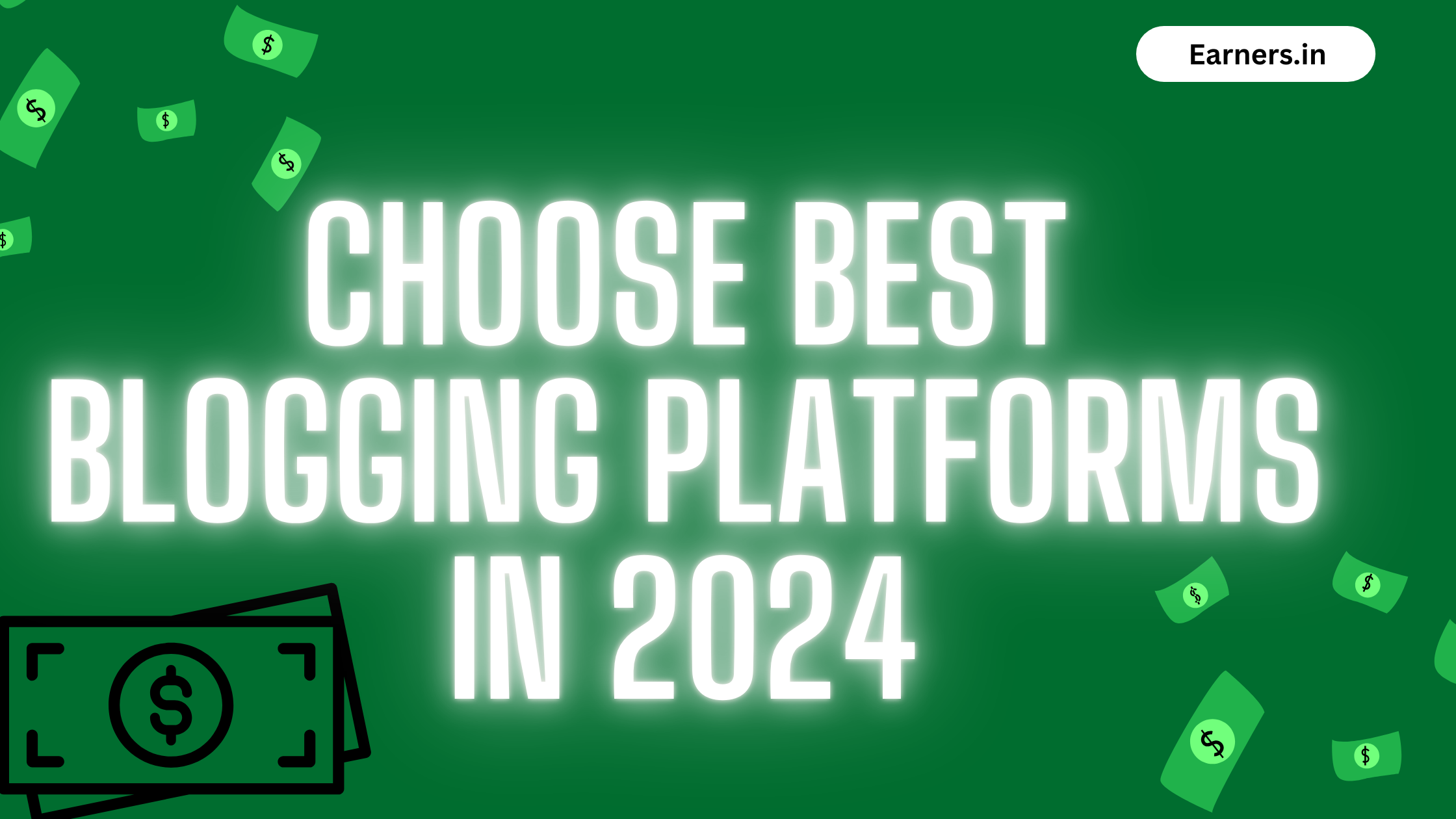Best Blogging Platforms in 2025
Introduction
The Evolution of Blogging
Since its beginning, blogging has advanced significantly. Initially a simple online journal, it has developed into a powerful platform for artistic expression, knowledge sharing, and even business startup. As 2024 approaches, both rookie and experienced bloggers must choose the best blogging platform.
Importance of Choosing the Right Platform
The platform you choose will determine the success of your blogging career. A robust platform should emerge alongside you, in addition to serving your current needs. Now let’s look at the top blogging platforms for 2025
Top Blogging Platforms for 2024
1. WordPress.org
Features
WordPress.org remains a powerhouse in the blogging world. It offers unparalleled personalization, with an endless amount of themes and plugins.
Pros and Cons
- Pros: Excellent SEO abilities, extensive personalization, and total command over your content.
- Cons: Needs a hosting service with a learning curve.
Ideal Use Cases
Perfect for those who desire the greatest amount of freedom when building a business website or blog.
2. Wix
Features
Wix stands out for its user-friendly drag-and-drop interface. It’s ideal for people who want to create a beautiful blog without worrying about technical aspects.
Pros and Cons
- Pros: Easy to use, visually appealing templates.
- Cons: Limited capacity to modify templates once your website launches.
Ideal Use Cases
Great for beginners who appreciate aesthetics and practicality.
3. Squarespace
Features
Squarespace combines elegance with functionality. Its stunning themes and built-in SEO techniques make it a favorite among creatives.
Pros and Cons
- Pros: All-in-one solution that includes hosting and beautiful designs.
- Cons: Limited third-party app integration.
Ideal Use Cases
Ideal for bloggers that value design and require a full solution.
4. Medium
Features
Medium is a unique platform that values content over design. It has built-in readership, which helps to increase the visibility of your blog.
Pros and Cons
- Pros: It’s simple to use and has the potential to spread rapidly.
- Cons: Your audience is not your property, and you have few options for personalization.
Ideal Use Cases
Ideal for writers who want to convey their thoughts and stories without worrying about technical details.
5. Ghost
Features
Speed and ease of use are important factors on the open-source Ghost platform. It is especially popular among professional bloggers and journalists.
Pros and Cons
- Pros: Fast performance, combined membership and subscription options.
- Cons: Requires some technical knowledge to self-host.
Ideal Use Cases
Perfect for those who wish to publish high-quality content and profit from subscriptions.
6. Substack
Features
Because it allows bloggers to interact directly with readers, Substack’s newsletter structure has contributed to its popularity. It’s perfect for content creators who want to build their email list.
Pros and Cons
- Pros: Easy to monetize, straightforward to use.
- Cons: Limited customization and design options.
Ideal Use Cases
Great for writers and journalists who enjoy interacting with their readers through newsletters.
7. Blogger
Features
Google owns Blogger, which was among the original blogging systems. It offers basic features with straightforward setup.
Pros and Cons
- Pros: Free, easy to set up.
- Cons: Limited customization and outdated templates.
Ideal Use Cases
Ideal for new bloggers or those who want to begin writing without making a financial commitment.
Considerations to Make When Choosing a Blogging Platform
Ease of Use
You’re trying to find an easy-to-use platform. If you’re not tech-savvy, look for alternatives that are simple to use, such as Squarespace or Wix.
Customization Options
Do you want to customize your blog in every way? Websites like WordPress.org offer many customization choices in contrast to more rigid platforms.
Monetization Opportunities
Make sure the platform you’ve chosen supports your preferred monetization techniques, such as affiliate marketing, advertising, or subscription models, if you wish to generate revenue.
SEO Capabilities
Look for systems that have integrated SEO tools or that enable you to properly optimize your content. WordPress, for example, is well-known for its effective SEO features.
Conclusion
Making Your Choice
In 2024, your specific needs—whether they be linked to usability, aesthetics, or financial potential—will dictate which blogging platform is best for you. Each platform has its own benefits, so think about what is most important to you. Enjoy your blogging!
FAQs
What is the best platform for beginners?
Squarespace and Wix are excellent choices for novices due to their easy-to-use interfaces.
Can I switch platforms later?
Yes, however it might be difficult, especially if you have a lot of content. Making a plan in advance is crucial.
Do I need to know how to code in order to use these platforms?
Although coding knowledge is not necessary for the majority of systems, some modifications can necessitate it.
Are free blogging platforms worth it?
Despite their restrictions, free platforms might be a fantastic place to start.
How can I monetize my blog?
Some revenue-generating strategies include affiliate marketing, sponsored content, ads, and subscriptions.
If you have Questions Contact us

Leave a Reply